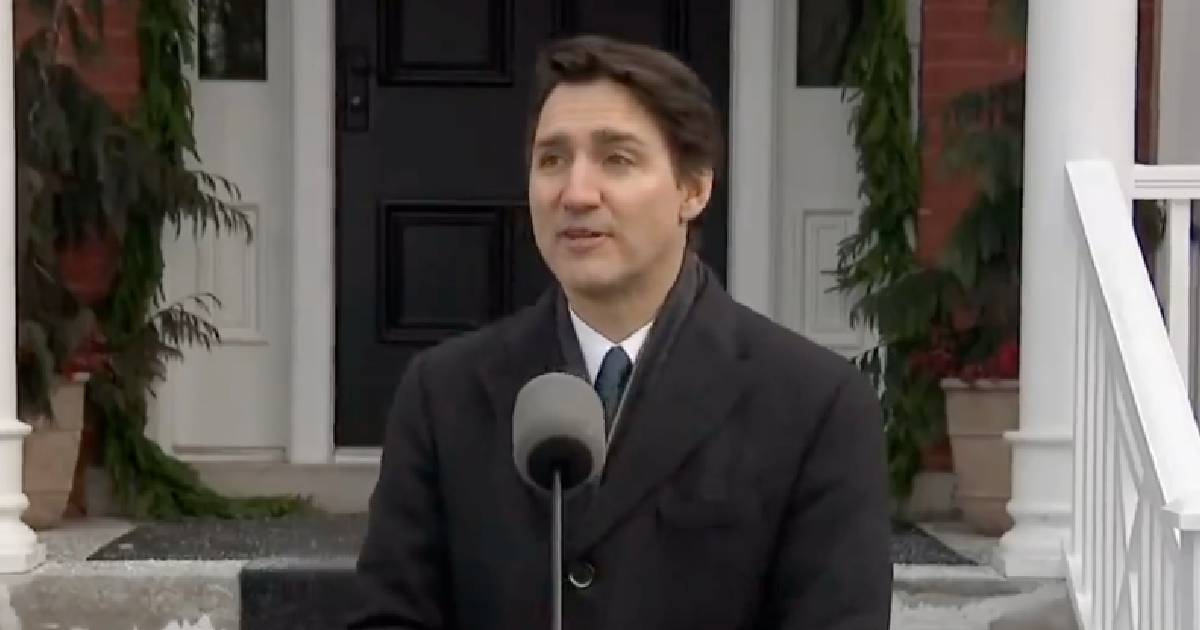
Related videos:
Canadian Prime Minister Justin Trudeau announced his resignation as leader of the Liberal Party and head of government on Monday, following a sustained decline in his popularity and a stalemate in Parliament.
The news was revealed through a public speech (press conference) in the city of Ottawa, where Trudeau reflected on his legacy and explained the reasons behind his decision, something that some media outlets had already hinted at.
"Every morning that I have woken up as Prime Minister, I have been inspired by the resilience, generosity, and determination of Canadians. That has been the driving force behind each day I have had the privilege of serving in this position," expressed Trudeau, who has led the country since 2015.
According to the BBC, the liberal leader highlighted his achievements over the past eight years, including the strengthening of the middle class, the response to the pandemic, progress in reconciliation with Indigenous peoples, the defense of free trade in North America, support for Ukraine in its fight for democracy, and efforts against climate change.
However, he acknowledged that the country is going through "a critical moment" and that Parliament has been stagnant for months, which he described as "the longest session of a minority Parliament in Canadian history."
Trudeau also shared that the decision was made after deep conversations with his family during the holidays. "I have decided to resign as leader of the party and prime minister once the Liberal Party chooses its next leader through a competitive and nationwide process," he stated.
The Prime Minister expressed that his intention is to create space for renewed leadership within the Liberal Party that can more effectively tackle the upcoming elections. "This country deserves a true option in the next election, and it has become clear to me that if I have to deal with internal battles, I cannot be the best choice in that election," he admitted.
Despite the challenges, he reaffirmed his commitment to Canadians and to the mission of his government until the leadership change is finalized. According to his words, the next phase of his life will be defined by supporting his family and the confidence that a new leader of the Liberal Party will continue to uphold the values and principles of this historic institution.
Trudeau's resignation marks the end of an era in Canadian politics, leaving behind a legacy of significant transformations but also challenges that will now fall to his successor, who will be chosen by his party.
Frequently Asked Questions about Justin Trudeau's Resignation and the Political Situation in Canada
Why does Justin Trudeau resign as Prime Minister of Canada?
Justin Trudeau resigns due to a sustained decline in his popularity and a deadlock in Parliament. Trudeau has faced a series of economic and political crises that have undermined his support both within and outside the Liberal Party, according to media reports. This decision aims to create space for renewed leadership that can approach the upcoming elections with greater strength.
What have been Justin Trudeau's most notable achievements as Prime Minister?
Among Trudeau's achievements are the strengthening of the middle class, the response to the pandemic, and progress in reconciliation with Indigenous peoples. He also advocated for free trade in North America, supported Ukraine, and made efforts against climate change during his time in office.
How will Trudeau's resignation affect relations between Canada and Cuba?
Trudeau's resignation could have significant consequences for the bilateral relationship between Canada and Cuba, particularly in the tourism sector, as Canada is the largest source of tourists to the island. A transition in Canadian leadership might create uncertainty regarding travel policies and the diplomatic relationship between Ottawa and Havana, potentially impacting tourism and bilateral cooperation.
What impact could the political crisis in Canada have on Canadian tourism in Cuba?
Canadian tourism is a fundamental pillar of the Cuban economy, but a potential transition in Canadian leadership could create uncertainty regarding travel policies and public perception, impacting the flow of Canadian tourists to Cuba. Additionally, challenges related to the quality of tourism services on the Island and criticisms regarding safety concerns could amplify in this context.
Filed under: